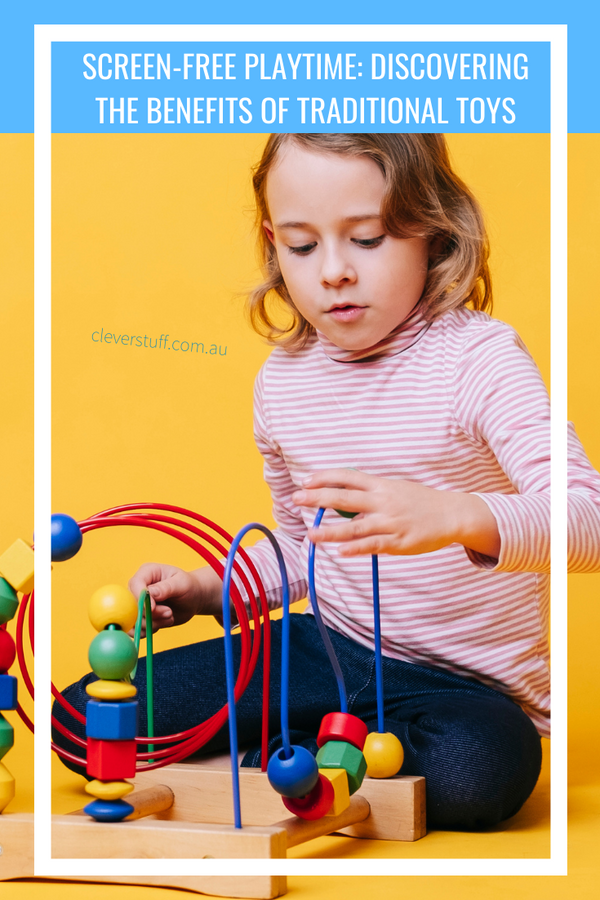Discovering the Benefits of Traditional Toys
In a digital world where screens are ubiquitous, it’s essential to create screen-free environments and opportunities for children to engage in imaginative and tactile play. Traditional toys have stood the test of time for a reason—they offer numerous benefits that promote creativity, social interaction, and cognitive development. In this blog post, we will delve into the advantages of traditional toys and explore the joy and value they bring to children’s playtime.
-
Unleashing Creativity and Imagination: Traditional toys, such as wooden blocks, dolls, and playsets, provide a blank canvas for children’s imagination to soar. Without pre-set rules or predetermined storylines, these toys invite open-ended play. Children have the freedom to create their own narratives, explore different roles, and invent endless possibilities. This imaginative play nurtures creativity, problem-solving skills, and divergent thinking.
-
Tangible and Tactile Experiences: Unlike digital toys, traditional toys offer a tangible and tactile experience. They engage children’s senses through touch, sound, and physical manipulation. Whether it’s the texture of wooden blocks, the click of puzzle pieces, or the weight of a doll, these sensory experiences promote fine motor skills, spatial awareness, and sensory exploration. We love sensory toys! Check out our range.
-
Social Interaction and Communication: Traditional toys often lend themselves to cooperative play, encouraging social interaction and communication between children. Board games, pretend play sets, and construction toys foster collaboration, turn-taking, and negotiation. As children engage with others in play, they develop crucial social skills, such as empathy, cooperation, and problem-solving within a social context.

-
Development of Fine and Gross Motor Skills: Traditional toys are excellent tools for developing fine and gross motor skills. Manipulating small puzzle pieces, building structures, or using play tools require precise movements and coordination, enhancing dexterity and control. Physical activities like running, jumping, and climbing during playtime also support gross motor development and overall physical fitness.
-
Cognitive Stimulation and Problem-Solving: Traditional toys challenge children’s cognitive abilities and problem-solving skills. Puzzles, memory games, and strategy-based board games promote logical thinking, pattern recognition, and memory recall. By engaging in these activities, children develop critical cognitive skills, including concentration, attention to detail, and analytical reasoning. If you need some toys to help with this check out our cognitive skill range.
-
Timeless Appeal and Versatility: Traditional toys have a timeless appeal that transcends generations. They often have a simple design and enduring play value, making them versatile and suitable for various age groups. From wooden building blocks to classic card games, these toys can be enjoyed by siblings, friends, and even parents, fostering intergenerational bonding and shared experiences.

As the allure of screens continues to grow, traditional toys offer a respite—a way to provide children with meaningful, screen-free play experiences. Through traditional toys, children can unleash their creativity, engage their senses, develop social skills, enhance their motor abilities, and stimulate cognitive growth. By embracing traditional toys and fostering a screen-free playtime environment, we can give our children the gift of exploration, imagination, and a well-rounded childhood. Let’s celebrate the joy and benefits of traditional toys and create lasting memories that will stand the test of time.

